Tron: A Tale of Logic, Light, and Human Ambition
Explore "Tron" (1982), directed by Steven Lisberger. This nostalgic classic blends stunning visuals with themes of identity and corporate power. Rating: 6.7/10.
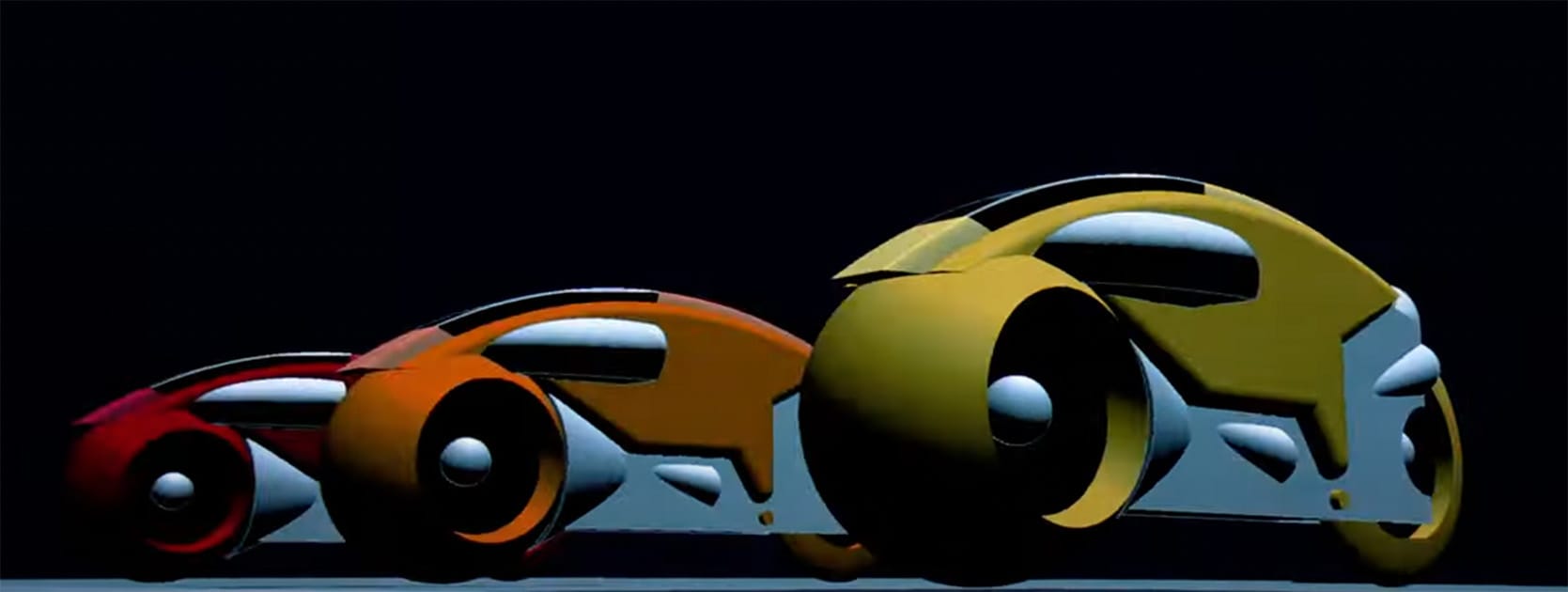
"Tron," released in 1982, directed and written by Steven Lisberger, stands as a landmark in the realm of science fiction cinema.
The film stars Jeff Bridges as Kevin Flynn, a computer programmer who is digitally transported into a vibrant virtual world and explores themes of technology, identity, and corporate greed. Alongside a talented cast that includes Bruce Boxleitner, David Warner, and Cindy Morgan, "Tron" employs groundbreaking visual effects that pioneered the use of computer-generated imagery in film.
Upon its release, "Tron" dazzled audiences with its pioneering graphics and unique depiction of the digital landscape. However, the film often relies more on its striking visuals than a cohesive narrative, leaving some viewers grappling with its convoluted plot and one-dimensional characters.
As we venture deeper into the world of "Tron," it becomes apparent that while the visual creativity is remarkable, the storytelling does not quite match the innovative aesthetics.
This review seeks to dissect how "Tron" succeeds as a visual spectacle while simultaneously grappling with its shortcomings in character development and plot coherence, ultimately solidifying its status as a cult classic in cinematic history.
| Attribute | Details |
|---|---|
| Title | Tron |
| Director | Steven Lisberger |
| Writer | Steven Lisberger, Bonnie MacBird |
| Actors or actresses | Jeff Bridges, Bruce Boxleitner, David Warner |
| Rated | PG |
| Runtime | 96 min |
| Box Office | $33,000,000 |
| U.S. Release Date | 09 Jul 1982 |
| Quality Score | 6.7/10 |
Synopsis
In "Tron," the narrative unfolds as Kevin Flynn, frustrated by his inability to prove that former associates at Encom have stolen his ideas, attempts to hack into the company's mainframe to retrieve evidence. His efforts result in an unintended consequence. He becomes digitized and finds himself within the vast and intricate virtual world of the Grid. Here, he encounters a variety of programs, each personified by digital avatars, including Tron, a security program and loyal defender of the system.
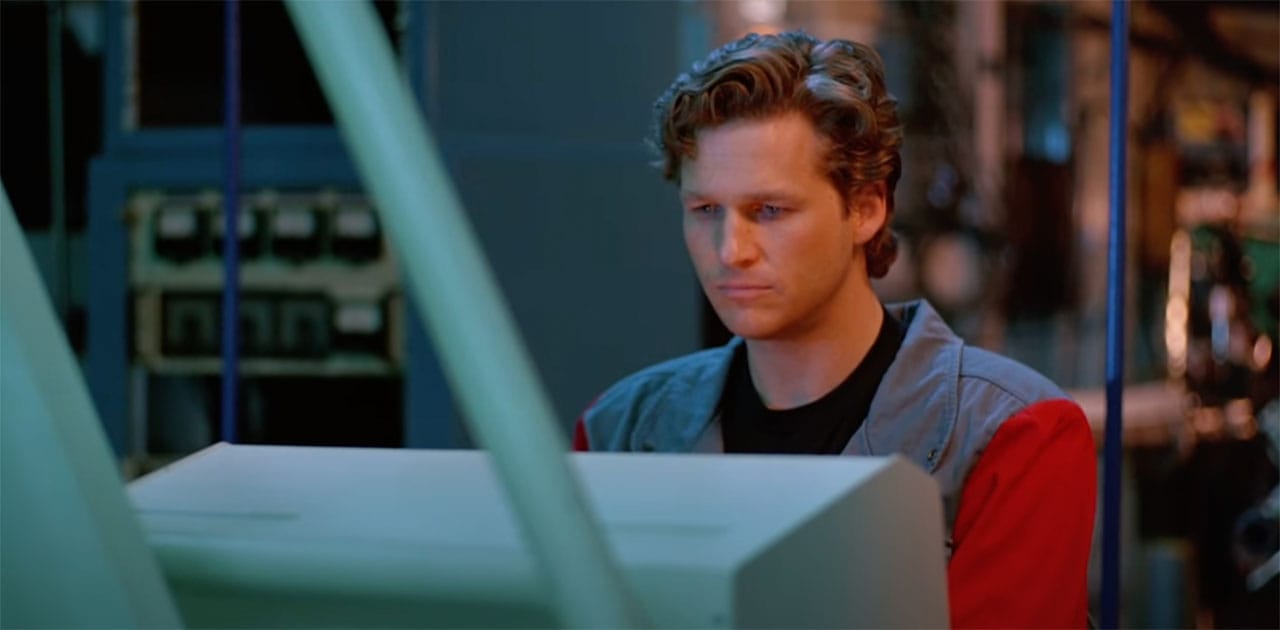
As Flynn navigates this digitally constructed landscape, he discovers the oppressive rule of the malevolent Master Control Program, which seeks to control not only the Grid but also manipulate the real world. Throughout his quest, Flynn teams up with Tron and the alluring program Yori, striving to overthrow the Master Control Program and liberate the programs trapped within its dominion.
Amid thrilling light cycle races and confrontations in the Game Grid, the film delves into the philosophical subtleties of existence within a digital space. Flynn embraces his identity as both a human and a program while facing the challenge of reconciling these disparate elements. Ultimately, the climax of "Tron" reveals the importance of individuality and the potential for technology to empower rather than subjugate.
While "Tron" showcases groundbreaking visual effects that shaped the landscape of future science fiction films, it also raises critical questions about the relationship between humanity and the ever-evolving world of technology.
The film's conclusion asserts a powerful message about the significance of choice and freedom in both the virtual and real worlds, reinforcing its relevance even decades after its release.
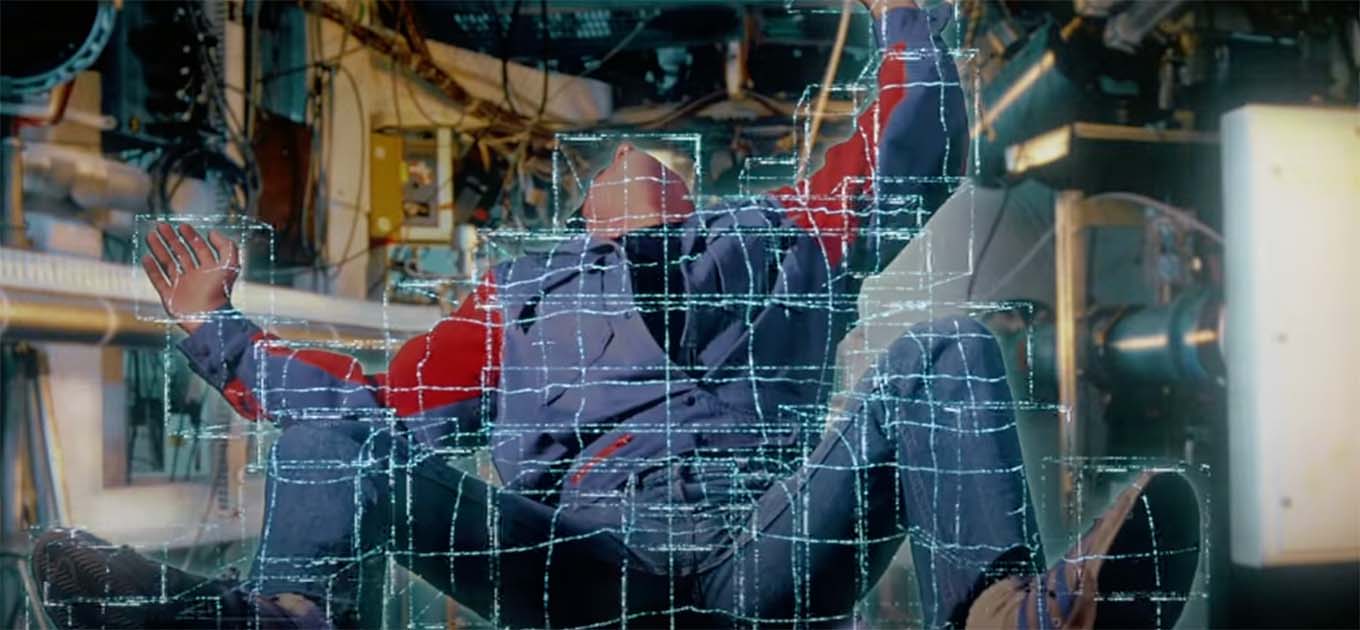
Themes
The "Tron" universe immediately envelops viewers in a realm that transcends traditional cinematic boundaries. The visual experience is nothing short of groundbreaking, marked by a vibrant color palette that juxtaposes the stark black of the digital world with glowing primary hues.
Each scene has a visual feast of neon light trails and geometric landscapes, creating an immersive environment that both captivates and transports the viewer into an alternative reality. The remarkable use of computer-generated imagery defines the visual language of the film, rendering it a pivotal moment in the evolution of science fiction cinema.
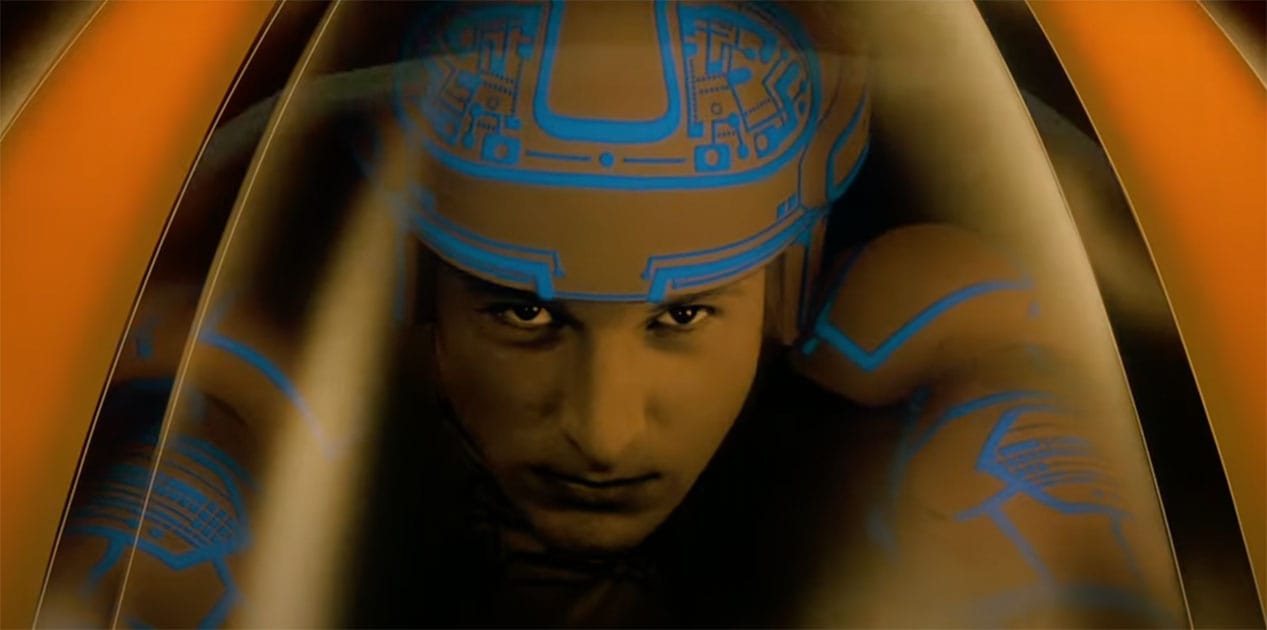
The auditory experience is equally compelling. The score, crafted by Wendy Carlos, bears an electronic influence that mirrors the film's themes of technology and identity. The pulsation of the Grid enhances the tension during action sequences and underscores moments of introspection. The heightened sound design, from the reverberating clash of light discs to the whirring of the light cycles, serves not only to entertain but also to immerse the audience in the visceral stakes of Flynn's journey.
One major theme woven through the narrative is the exploration of identity in the face of technological advancement. Flynn's transformation from programmer to digital avatar raises questions about what it means to be 'real' in a world where the lines between the physical and virtual are increasingly blurred.
Within the Grid, the characters—both programs and humans—are faced with the challenge of self-definition in a society governed by the rigid rules of the Master Control Program. This theme of identity becomes all the more poignant as Flynn embraces his dual existence, ultimately recognizing that he is both creator and creation. In many ways, this mirrors the challenges we face in our own reality, where technology continuously shapes our identities—social media personas, digital engagements, and virtual relationships challenge our notions of who we are.
Another central theme in "Tron" is the critique of corporate power and the implications of unchecked technological control. The Master Control Program embodies the potential dangers of a world where technology is governed by monopolistic entities, manipulating both the digital realm and the realities of human existence for profit. Flynn's struggle against this authoritarian figure reflects a broader societal concern about the ethical responsibilities of innovators. The film prompts viewers to consider the consequences of our increasing reliance on technology—what we surrender when we allow these systems to dominate our lives.
Furthermore, the film delves into the potential for liberation within technological confines. Through the character of Tron, we witness the power of individual agency and resistance against tyrannical systems. The collaboration between Flynn, Tron, and Yori symbolizes the importance of teamwork and solidarity in overcoming oppressive forces, reinforcing the film's message that empowerment can arise even in the most confining environments.
In conclusion, "Tron" presents a multifaceted exploration of identity, corporate power, and the struggle for liberation within a digitally constructed universe. Its visionary aesthetics—visually arresting and aurally immersive—are matched by thought-provoking themes that echo across decades.
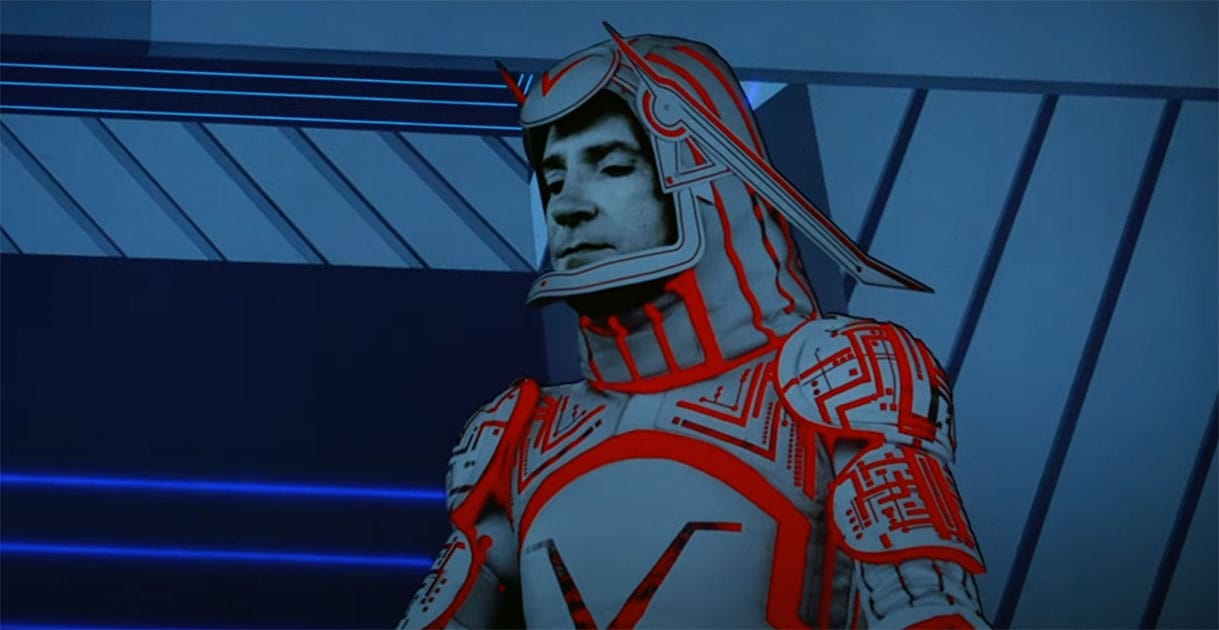
The experience of watching "Tron" is not merely about witnessing a story unfold. It becomes an introspective journey into the implications of a world increasingly dominated by technology, an awakening to the reciprocity between humanity and the digital landscape. This film, both a reflection of its time and an enduring paradigm, invites us to ponder the narratives we craft within our own lives amidst the ever-expanding realm of technology.
Who Will Enjoy Tron
"Tron" stands out as a captivating experience for a variety of viewers, transcending the traditional audience of science fiction enthusiasts. Those intrigued by the rapidly evolving landscape of technology and its effects on society will find a thought-provoking narrative interwoven with dazzling visuals. Individuals interested in digital culture and its implications—such as the rise of virtual worlds and gaming—will appreciate the film's prescience and its exploration of what these advancements mean for human identity.
The film serves as an excellent choice for a gathering of friends who enjoy reminiscing about the evolution of cinema, particularly as it pertains to groundbreaking visual effects. Watching "Tron" together can ignite discussions about the impact of technology on art, storytelling, and society. Those engaged in careers or studies related to computer science and digital art will find both inspiration and reflection within its fantastical interpretation of the digital realm.
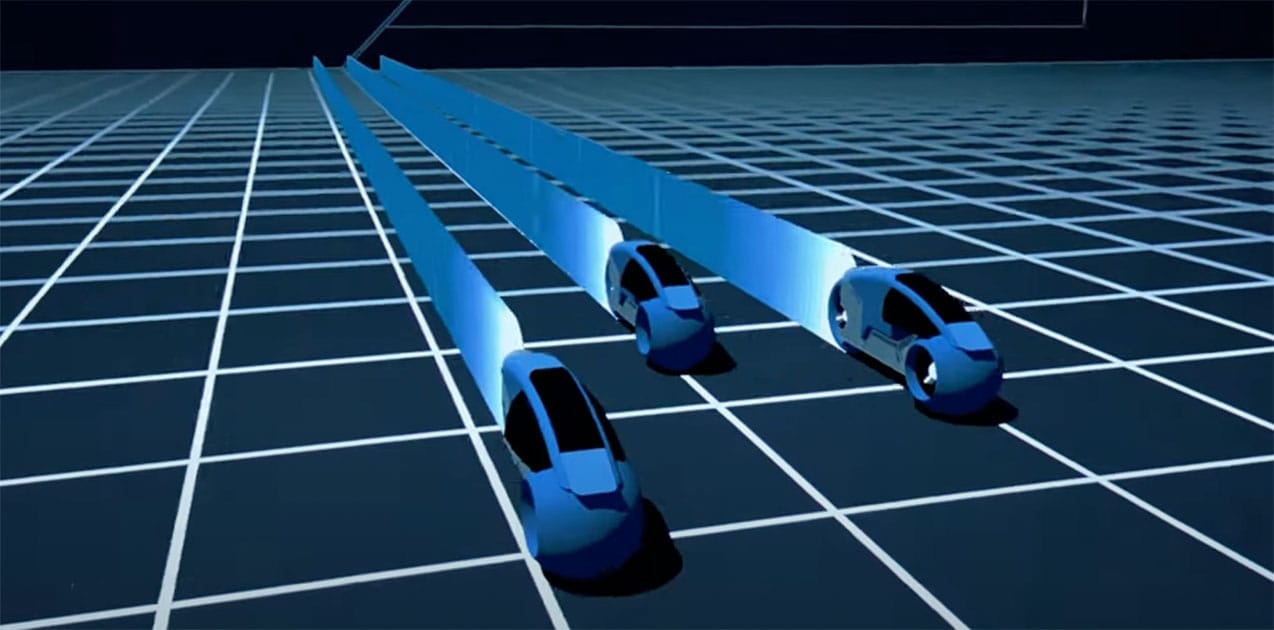
For a family movie night, "Tron" presents a unique opportunity to introduce young viewers to the historical context of today's digitized world and share moments of wonder and excitement through its visually stunning sequences.
Returning to the review's central thoughts, "Tron" emerges as a film that artfully balances visual innovation with thematic depth. While its narrative complexity occasionally stumbles and its characters may not fully engage some viewers, the film succeeds in presenting significant questions regarding identity, corporate control, and individual empowerment.
In considering "Tron," one cannot overlook its distinction as a pioneer in science fiction cinema. Even with its flaws, it stands as a remarkable illustration of the interplay between technology and humanity, ensuring that it remains relevant and stimulating for audiences years after its initial release.

